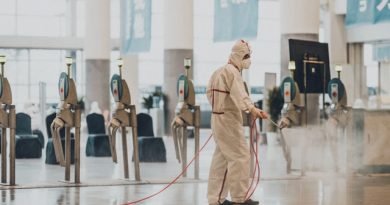Human Rights Watch Report Reveals Stifled Speech in Gulf States
By Mohammed Syed
Staff Writer
Raif Badawi’s hands and feet remained shackled, and his mouth silent, as he was publicly flogged 50 times in a matter of 15 minutes in front of a Jeddah mosque after Friday prayers.
Thirty two year old Badawi was serving punishment over comments he made on his website, Saudi Liberal Network, which encouraged debate on political and religious issues pertaining to Saudi Arabia and the Gulf.
His punishment, sentenced by a Saudi appeals court in 2014, included ten years of prison time, a fine of one million Saudi Riyals, and one-thousand lashes. He was awarded the Sakharov Prize for Freedom of Thought by the European Parliament in October 2015. His wife remains a political refugee in Canada.
The stories of Badawi and many other social media activists have been the subject of a Human Rights Watch campaign in support of Gulf monarch dissidents. “140 Characters” takes users on the journey of the stories of 140 activists, a tribute to Twitter’s 140-character limit.
The report also features the stories of prominent activists such as Nabeel Rajab and Zainab al-Khawaja from Bahrain, Waleed Abu al-Khair and Mohammed Fahad al-Qahtani from Saudi Arabia, and Ahmed Mansoor and Mohammed al-Roken from the United Arab Emirates (UAE).
“The Gulf states have engaged in a systematic and well-funded assault on free speech to subvert the potentially transformative impact of social media and internet technology,” said Sarah Leah Whitson, Middle East director. “Instead of hauling off their peaceful online critics to jail, Gulf governments should expand debate among members of society and carry out the much-needed reforms that many of these activists have demanded for years.”
The rise of social media activism in the Gulf is no surprise. Internet World Stats reported that by June, 39 million of the total Gulf state population of 48 million were active internet users. The Arab Social Media report documented that by late 2015, Saudi Arabia accounted for 2.4 million Twitter users, representing 40 percent of all Twitter users in the Middle East.
Human Rights Watch also drew attention to use of highly advanced surveillance tools used to monitor activists by Gulf governments. Research conducted by Citizen Lab, a Toronto based group, found evidence of the usage of intrusion software by Saudi Arabia, Oman, and the UAE. The software was bought from Italian firm Hacking Team.
Bahrain, Oman, Qatar, Saudi Arabia, and the UAE may have also purchased software from FinFisher/Gamma international. These claims were referenced by documents and emails leaked through data breaches which both companies suffered in 2014 and 2015.
FinFisher/Gamma and Hacking Team sell intrusion software that allows for government surveillance agencies to hack into personal phones and computers. When devices are covertly hacked, and the software is installed, it can allow governments to access text messages, call history, contacts, and potential passwords. Authorities can also turn on phone and webcam cameras without user knowledge.
NGO Bahrain Watch works to investigate the Bahrain government’s use of private hacking tools. In August 2014, they found that the government had infected the computers of activists, lawyers, and politicians with FinFisher software.
In June 2014, Citizen Lab researchers found that a corrupted version of Android Arabic-language news application, al-Qatif al-Youm, was available for public distribution, and had the ability to infect user phones with spyware. In May 2016, they revealed the discovery of a spyware attack campaign carried out against journalists and prominent activists, by an unknown operator. Evidence pointed to the UAE government.
In August, Citizen Lab also reported that Ahmed Mansoor, an Emirati activist, received messages on his iPhone which encouraged him to click a link that had information on detainees tortured in UAE jails. Through inspection of the link, the team found that clicking it would have opened Mansoor’s phone to an outside operator, who could have monitored his messaging applications, wired phone audio at all times, and operated the camera.
Other news publications have covered similar findings. The Intercept found that the UAE has purchased equipment such as internet monitoring tools from BAE systems, and has been revealed to be used in hacking operations from Israeli company NSO Group. They also found that DarkMatter, a cybersecurity company, has been working to hire an army of hackers to build higher surveillance capabilities in the Gulf.
Gulf Cooperation Council (GCC) states are the primary target Human Rights Watch advocacy campaign. “140 Characters” covers the broad and increasing usage of laws and regulations in the Gulf which allow for restrictive limits on the freedoms of assembly, press, association, assembly, and speech.
“Since the beginning of the Arab uprisings in 2011 all GCC states have expanded existing legislation and promulgated abusive new laws with a view to further curtailing free expression and punishing speech deemed ‘criminal’ by GCC governments, particularly online and via social media networks.” writes HRW “The various laws promulgated since 2011 [the Arab Spring] have had a chilling effect on freedom of expression, in some cases branding government critics as ‘terrorists,’ or granting authorities the right to strip peaceful protesters and dissidents of their nationality.”
The report features extensive data and historical accounts on the individual surveillance and prosecution methods of individual Gulf states, including Bahrain, Kuwait, Oman, Qatar, the UAE, and Saudi Arabia.
HRW offered policy recommendations to Gulf states and to social media and surveillance groups operating in GCC countries. The group’s primary focus was on a legislative overhaul of all the laws and mandate which allow for the suppression of expressive and civil organization freedoms, and the release of political prisoners.
HRW also chastised technology surveillance companies for colluding with GCC governments.
The interactive campaign website features the stories of the 140 activists curated by HRW, which users can filter by country, prisoner status, and profession. It also offers an Arabic language option of the portal.
Read the full report here: http://internap.hrw.org/features/HRW_2016_reports/140_Characters/#en


